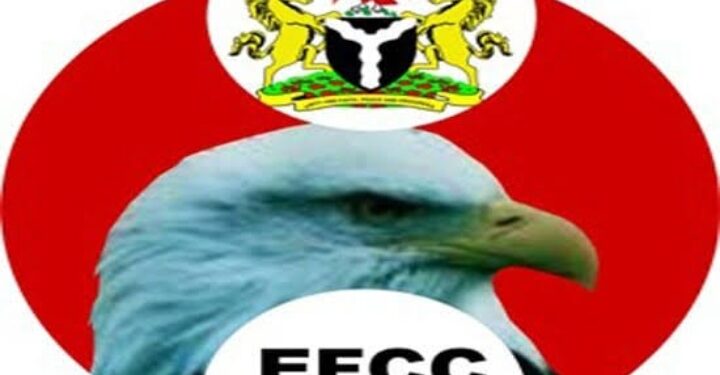Trackup-news.com
12 July 2025
A Federal High Court in Lagos has ordered the final forfeiture of assets, luxury vehicles, and cash linked to a massive fraud scheme involving the illegal diversion of funds from Union Bank customers.
Justice Daniel Osaigor granted
the Economic and Financial Crimes Commission (EFCC) application for the forfeiture, citing a detailed investigation that uncovered a fraudulent withdrawal of over ₦2 billion from 575 unsuspecting customers’ accounts.
EFCC’s counsel, Hanatu Kofar-Naisa argued the application urging
the court to permanently forfeit the identified assets as proceeds of unlawful activity, pursuant to Section 17 of the Advance Fee Fraud and Other Fraud Related Offences Act, 2006, and Section 44(2)(b) of the 1999 Constitution (as amended).
She emphasised In her submissions
that the suit was not against any individual but properties acquired through unlawful means, noting that failure to forfeit the assets would amount to rewarding criminal conduct.
Items forfeited are: A 3-bedroom bungalow at Macedonia Street, Queens Estate, Karsana Gwarimpa, FCT, Abuja, a house at No. 8 Grace Crescent, Efab Queens Estate, Gwarimpa, Abuja, and multiple high-end vehicles including a Mercedes Benz C300, BMW SUVs, Range Rovers, and three Toyota Hilux pickups.
Also forfeited is the sum of ₦326.4 million and $480,000 in cash recovered during the course of investigation.
Report says the application was supported by a detailed affidavit deposed to by Sulaiman Aminu Muhammad, an investigating officer of the anti-graft agency, who described the scale of the fraud as “monumental,” and said the operation targeted dormant or “no-debit” accounts within Union Bank.
According to the affidavit, the EFCC launched its investigation after receiving a formal petition from Union Bank on October 24, 2022, detailing how its systems had been fraudulently manipulated to facilitate unauthorised debits on customer accounts.
By July 2023, a follow-up petition revealed that the total stolen funds had increased to ₦2,007,000,000, prompting a deeper forensic investigation.
The probe uncovered that the bank’s audit unit had identified suspicious transactions involving 575 accounts placed on a “no debit” status, which were nonetheless debited using methods inconsistent with normal banking procedures.
The EFCC’s investigation revealed that two companies, Actus Homes Limited and Fav Oil and Gas Limited, were central to the scheme, receiving funds from compromised accounts without any legitimate commercial relationship with the customers.
Funds from the compromised accounts were funneled into these entities without any legitimate commercial relationship with the customers.
Actus Homes Limited was said to have received N681.2 million from 126 customer accounts, while Fav Oil and Gas Limited was said to have received a cumulative ₦1.388 billion from 429 accounts.
Further investigations showed that neither company had applied for or received loans from the bank, nor did they render any service that would justify the inflow of such large sums.
The funds were subsequently used to acquire real estate and luxury automobiles, all now forfeited by the court.
The EFCC said it was able to trace ₦887.4 million that had been transferred into various bank accounts, and also recovered large cash sums, including those discovered in a black Escalade vehicle — now forfeited.
Union Bank managed to salvage ₦519.1 million, which remained untouched in some of the accounts flagged during the audit.
In line with legal requirements for non-conviction-based forfeiture, Justice Osiagor had earlier granted an interim forfeiture order on May 16, 2025, and directed the EFCC to publish the court order in a national newspaper.
The publication on June 5, 2025, invited interested parties to show cause within 14 days why the properties should not be permanently forfeited. No objections were received.
Having complied with due process and satisfied the court of the connection between the assets and proceeds of fraud, Justice Osiagor granted the EFCC’s final forfeiture request.
Report says the main suspects in the fraudulent scheme are already facing trial in a separate criminal proceeding.
BACKGROUND OF THE REPORT
KEY PLAYERS INVOLVED
– *Union Bank*: The bank where the fraud occurred, with the incident happening on March 23, 2025.
– *EFCC (Economic and Financial Crimes Commission)*: The agency investigating the fraud.
– *Suspects*: Several individuals, including former Union Bank staff member Abdulmalik Salau, Ismaila Yousuf Atumeyi, and Ngene Joshua Dominic, were arraigned for alleged cybercrime and money laundering.
HOW THE FRAUD UNFOLDED
The fraudsters exploited a critical system glitch in Union Bank’s database, siphoning funds in small, deliberate transactions to avoid detection. They funneled the stolen money into 54 different financial institutions.
INVESTIGATION AND LEGAL ACTION
The EFCC launched an investigation after receiving a formal petition from Union Bank. They froze accounts linked to the fraud and recovered some of the stolen funds. The court granted a Post No Debit (PND) order, preventing further withdrawals from the implicated accounts.
PREVIOUS SIMILAR CASES
In 2020, the EFCC secured the conviction of Abass Mohammed and a Bureau De Change (BDC) operator, Ibrahim Saidu Jogal, who connived to hack into Union Bank’s database and defrauded the bank of ₦2.55 billion. channels online













